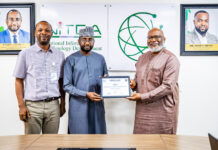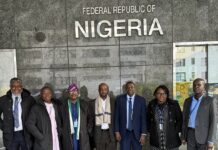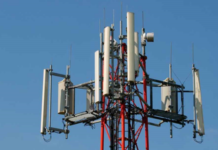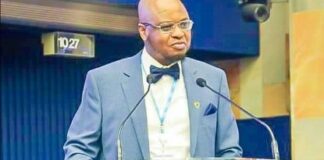Bill Gates Explains How Data and Technology Can End Hunger
TECH DIGEST – Global tech icon, Bill Gates has enumerated the potentials of technology as a potent tool against hunger and other challenges globally, especially in Africa.
Helping smallholder farmers, especially in low-income countries, invest in results-oriented climate-resilient agriculture is essential to achieving the Sustainable Development Goals and avoiding a “catastrophic economic crash,” Bill Gates, co-chair of the Bill and Melinda Gates Foundation, said in a special event during the 42nd Session of the Conference of the Food and Agriculture Organization of the United Nations (FAO).
“Smallholder farmers are accustomed to overcoming incredible adversity and are constantly innovating based on changing weather and market demands,” Gates said. “But they can’t solve this alone.”
Gates delivered the McDougall Memorial Lecture, which takes place every two years and honors the legacy of Frank Lidgett McDougall, an Australian agricultural expert who was instrumental in creating FAO.
The iconic technology entrepreneur who co-founded the Gates Foundation has a long-standing relationship with FAO. Last year, the Gates Foundation donated $10 million to the FAO-led fight against the Desert Locust upsurge in Africa. The two organizations also collaborate on a number of issues central to their missions.
“As partners, we share the belief in the power of science and technology as drivers for transitioning millions of people out of poverty, improving people’s health and well-being, and ensuring that all people have access to adequate and nutritious food,” said the FAO Director-General QU Dongyu, who introduced the lecture and commended Gates’ commitment to FAO and its noble mission.
In his lecture, Bill Gates warned that climate change has already reduced growth in agricultural productivity and is expected to cut harvest yields by as much as 30 percent, raising food prices and increasing farmers’ exposure to droughts and floods and plunging millions more people into hunger.
“It’s particularly unjust that the nations who have contributed the least to greenhouse gas emissions – and who are now waiting the longest for COVID vaccines – are the ones most impacted by these challenges,” he said.
He emphasized that Sustainable Development Goal 2 calls for ending hunger by 2030 and also the sustainable doubling of the income and productivity of small-scale food producers.
To make such ambitious targets meaningful, better data is needed to measure progress towards them. The Bill and Melinda Gates Foundation is supporting FAO’s statistical work to fill data gaps.
Bill Gates commended the “50 by 2030” initiative, co-led by FAO, the International Fund for Agricultural Development and the World Bank, which aims to help 50 low- and middle-income countries gather, analyze and use data to track progress and improve policy making.
He also praised the Ceres2030 project for using new advances in machine learning to build a database of knowledge on effective interventions for smallholder farmers, and the African Union’s work on an African Agricultural Transformation “scorecard” for monitoring trends.
Gates remarked further on the “good work taking place across Africa to help farmers adapt and create long-term solutions to the threats posed by climate change. For example, farmers in East Africa are using big data to develop an early warning system for wheat rust outbreaks,” whose costs run into the hundreds of millions of dollars, that has already prevented one epidemic. He also pointed to mobile platforms that allow smallholders to purchase inputs, obtain technical advice, apply for credit and crop insurance, and find buyers for their outputs.
















